
Teaching Traveling: Why does travel help us become better teachers? Let’s find out, from an expert!
I’m thrilled today to welcome Yves Marceau, a former classroom teacher who now helps others expand their worldview through responsible group adventure travel at G Adventures! (Note: Links to G here provide a small commission at no extra cost to you.) Yves, tell us about your teaching, traveling journey.
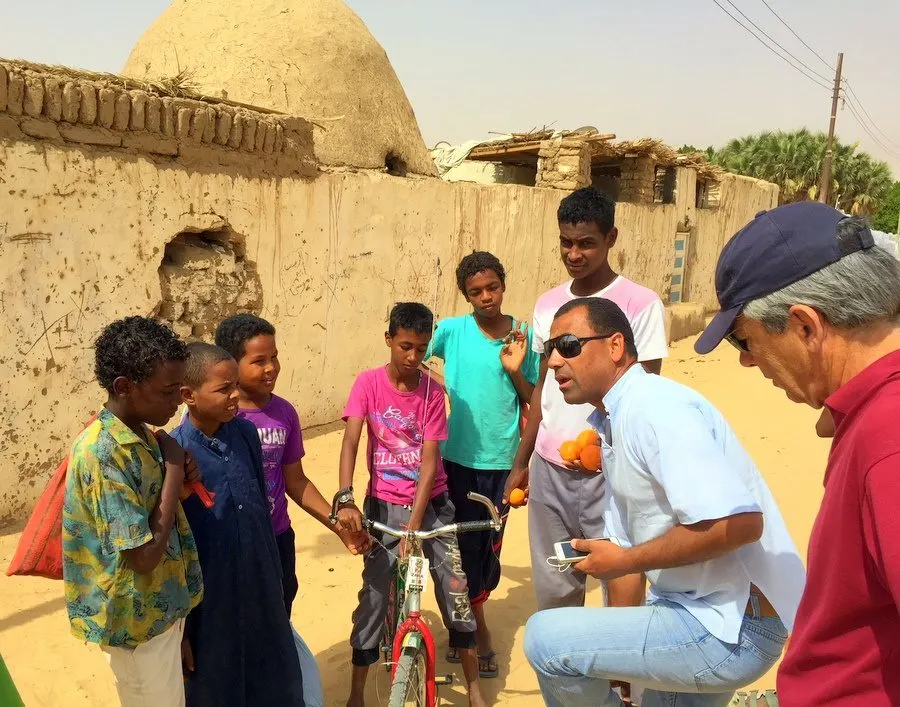
Yves: I was raised in Montreal and from an early age, had a fascination with European history. My dream since childhood was to see the Mediterranean. It captured my imagination, learning about Roman history, Greek mythology and the classics.
My first travel experience occurred was when I was 18 years old and invited to go to Europe by my best friend, whose grandfather had survived the concentration camps in WWII. At the last minute, my friend’s plans changed, but I was primed for adventure.
As I’m sure so many people in your community can appreciate, it was my high school World History teacher who encouraged me to take the leap. She convinced me that I had it in me to go by myself and it was just too good an opportunity to pass up. So, I quit my job and flew over to Paris by myself — my first time traveling alone.
I ended up staying in France for the whole summer, just touring around wherever my curiosities led me. At first, I had no reservations and nothing planned, but I quickly rented a motorcycle and took off. What I learned that summer is that I absolutely love exploring new places.
The first site I visited after Paris was the Cathedral of Chartres: one of the oldest in Europe. It took something like 300 years to build it, and to see the hand-carved art work accomplished over generations of builders felt like a living connection with the past. I discovered that history, when it’s lived and experienced, is much more powerful than just being taught in a class or learned in a book. I had always been a history nerd, but this experience made me much more of one!
When I returned home to Canada, I arrived with the conviction that I would one day get back into travel. But first, I had to complete my education and start my career. After graduating from college with a degree in political science, I took a second leap and emigrated to the United States.
My first “teaching” experience was in Colorado, teaching five-year-olds how to ski, and it taught me that I was actually pretty good at teaching! I maintained a friendship with my high school History teacher, who continued to challenge me, and I eventually settled in Massachusetts where I taught high school and middle school aged students French and World History.
The school was in a very rural district, where it was a struggle to get the students motivated to learn about French because they couldn’t see its relevance to their lives. But that spurred me to connect with a local organization and help bring 30 French exchange students to the area to integrate with our community and youth.
It was my first experience organizing travel, and it sparked a love that continues for me today. Happily, it also helped build the French program at the school. By the time I left, there were more students learning French than Spanish (#humblebrag).

TT: Amazing! Tell us more about your travels!
Y: Bolivia is fresh on my mind, since I just completed a research trip there, but it also stands out as one of my most memorable and surprising trips yet. (That’s saying something, since it was my 71st country.) Previously, it was a place I knew little about.
What made Bolivia so special was seeing how globalization hasn’t fully reached the country yet. You don’t see a lot of international brands or chain stores, the infrastructure is quite good, and it’s very safe. The people are incredibly friendly.
Each city and town, in each valley, lends the impression of visiting a different part of the world. La Paz impressed me in its vibrancy. All of the outdoor markets are left up at night and the community takes good care of them.
I also loved how they’ve addressed public transit with a system of networked gondolas. You actually travel over a city. It’s a phenomenal way to get a sense of a place and its scale vs. traveling underground when you see nothing. There are only about 10 people per gondola, everyone has a seat, they’re inexpensive and comfortably air-conditioned.
Once you step outside of the city, the countryside is a completely different experience. It’s a hilly country so as you move from valley to valley, the scenery changes quickly — almost like different ecosystems. It’s like going from the steps of Mongolia, to the deserts of the American southwest, to the grasslands of the Serengeti, to the deserts of the Middle East – all in one country.
There are amazing sites like the white salt flats, the high altitude deserts, the red lagoon with thousands and thousands of pink flamingos. I felt like I did a world tour. It’s spectacular and so clean. There were places where ours was the only vehicle in a valley, and I was in awe the whole time.
Bolivia, to my mind, is one of those destinations that’s about to take off as a travel destination, so be one of the early visitors if you can. G Adventures offer an 11-day Classic tour called Bolivia Discovery, starting at $1499 per person, and — brand new for early 2019 — an upgraded, eight-day National Geographic Journeys tour called Highlights of Bolivia.
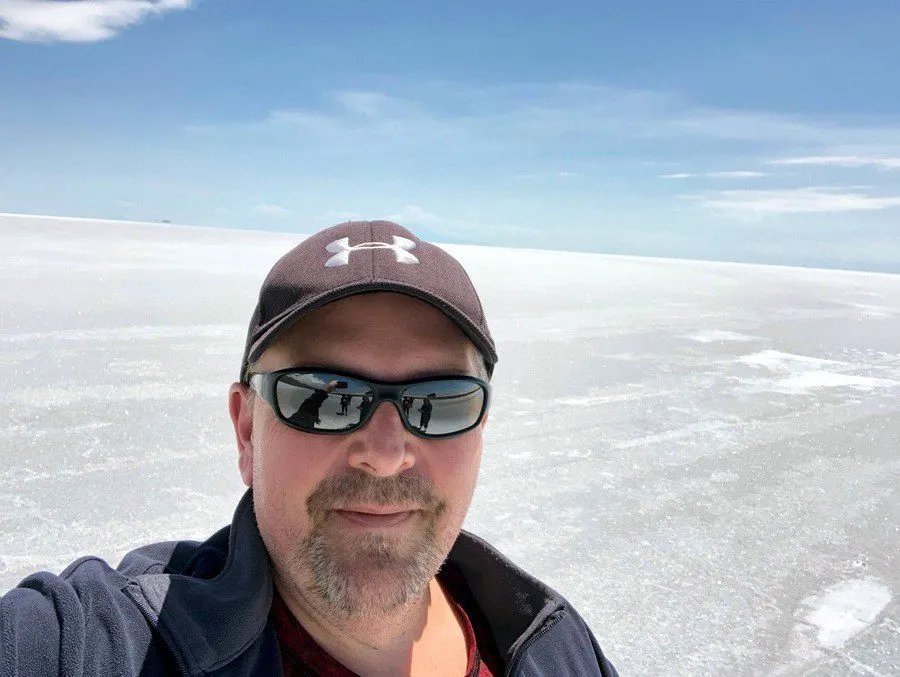
TT: Now you’ve got me dreaming about visiting Bolivia… How do you find your travel opportunities?
Y: I’m lucky to work for an international travel company, whose tour guides and operations staff live and work in the countries our travelers visit. In that way, I’m able to hear colleagues’ stories and see their social media posts in my feeds, and that constantly inspires me to want to learn and experience more.
TT: So alluring! Now, how did you find the money to fund your travel?
Y: When you work in tourism, especially on the product and buying side, travel is easy. A new destination often serves as the backdrop for your work day. Luckily, it’s work that I love.
In fact, I’ve always thought that when I retire, I’ll either become a tour guide or a teacher again, sharing slide shows and stories of the memorable people I’ve met.
I want to cultivate curiosity in today’s young people, who think they see and know it all because of the immediate access to other cultures at their fingertips… but seeing is not experiencing!
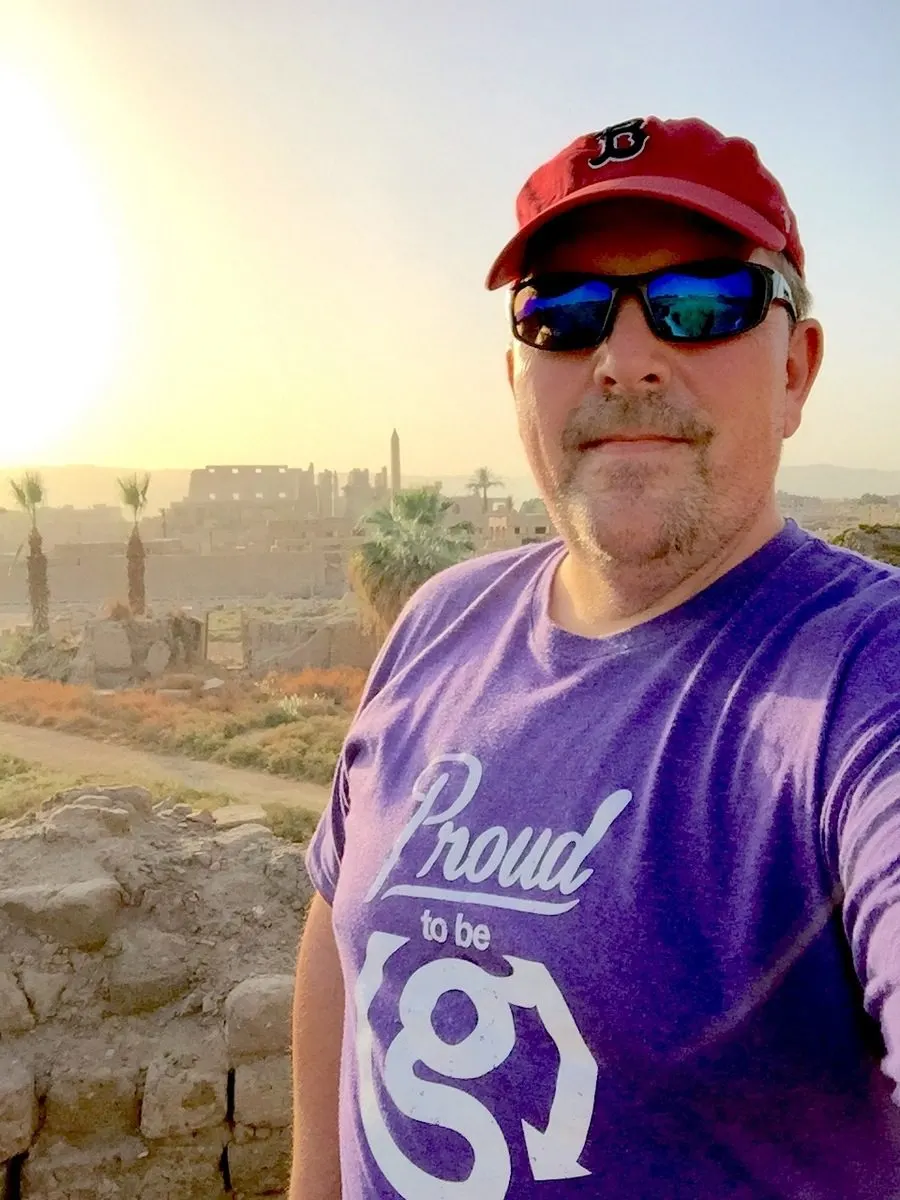
TT: So true. Tell us one moment from your travels that was particularly powerful.
Y: There was that one VERY memorable time in April of 2010 when I was chased by pirates off the coast of Kenya… but I’ll save that tale for another time.
One of the coolest moments I’ve ever experienced occurred when I visiting Egypt in 2015. I was checking out the self-powered sailboats that traverse the Nile River, and remembered from my years of teaching history that these boats are one of the oldest methods of transport in Egypt.
It’s believed the ancient Egyptians mastered them to transport the heavy rock for pyramid construction. To see them still in operation today, and hosting travelers in some cases, felt like another direct connection to our past.
Our goal was to visit some Nubian villages and meet local people. When we entered the first village, a bunch of teenage boys enthusiastically greeted us. One insisted on bringing us to his house to meet his grandmother, who was seated in the hot sun and looking sad to her very core.
Although I don’t speak or understand Arabic, I instinctively understood what she felt as she shared memories of a son who had recently died. The hurt in her eyes and face was palpable. Yet, the fact that she was willing to share that very personal heartache with us, and offer a refreshing glass of fresh-squeezed strawberry juice from their modest home, was humbling and humanizing in a way that words cannot express.
That’s what I love about the Middle East. It often gets a bad press about people there resenting Americans or being dangerous to us. The truth is: I’ve never experienced that. They invite you into their house and you are instantly their brother or sister. The hospitality of Arab cultures is really special.
You can experience it for yourself on one of G Adventures’ immersive, small-group tours such as our eight-day Classic tour: Best of Egypt (from $999 per person), and our 11-day comfort level tour: Egypt Upgraded.
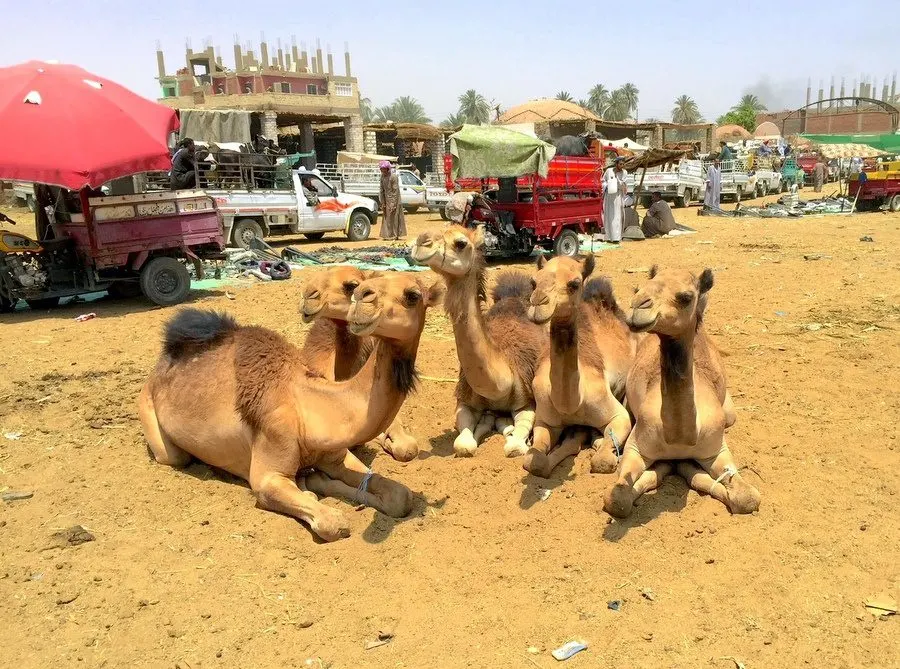
TT: What a story. How have your travels impacted you in your career, and how have your travels impacted you as a person?
Y: As a person, travel has opened my mind, and helped me remember that what we hear in the media is not always accurate. You should question things; try to see and experience them for yourself, because rarely have I seen the negativity that’s often portrayed about other places and people. As a teacher, travel has both validated and cemented my belief that it can be one of the fastest paths toward understanding and peace.
I feel strongly that young people should be encouraged – if not required – to go travel and explore other cultures during a finishing year. (I even wrote my grad school thesis paper on this.) You come back with a whole different, global perspective, and the capacity to understand your place in the larger world beyond your day to day.

TT: Absolutely true! What advice do you have for teachers who are dreaming of travel, or travelers dreaming of teaching?
Y: I would encourage teachers to make sure they take the time in the summer to travel. It revitalizes you, it re-energizes your soul, and it gives you new material to inspire your student.
Just don’t do travel on a huge bus. Find companies that allow you lots of opportunity to go off on your own or in a small group with a local guide who can point you in the right direction. Challenge and push your own boundaries. Go places where you’re not going to be comfortable because you come back a better educator.
Education is about pushing our kids, after all. If we’re not willing to push our own selves, how can push our kids?
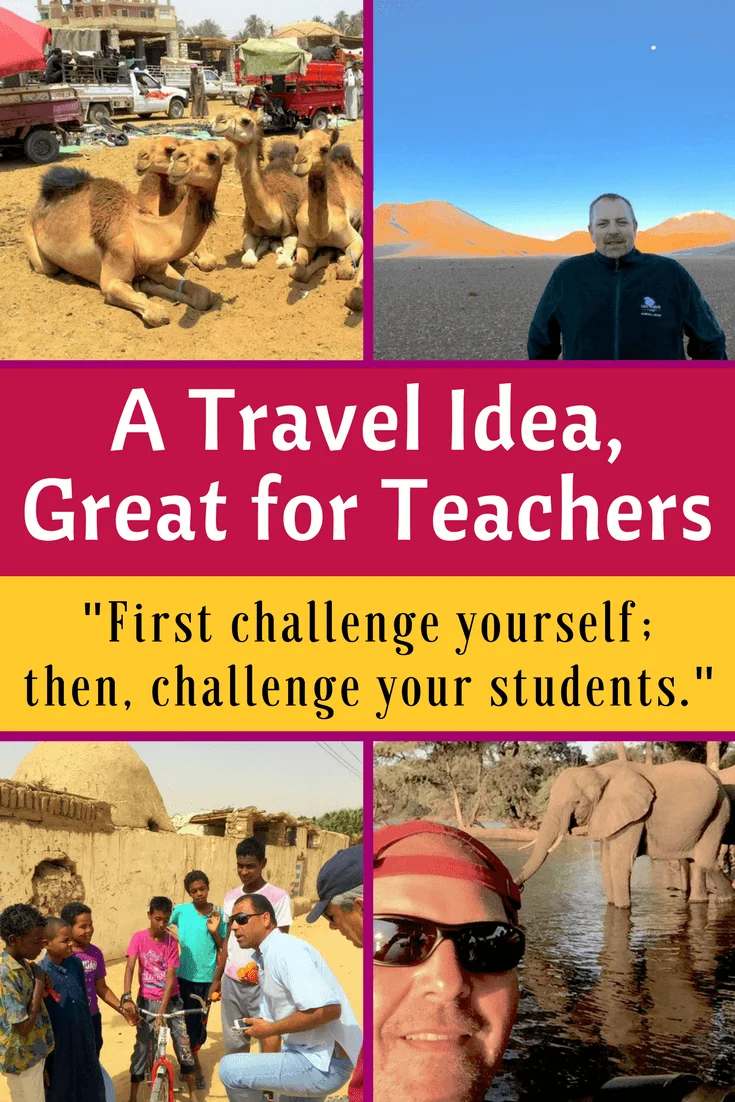
TT: Beautifully put! Readers, what questions or comments do you have for Yves?
If you’re looking for travel ideas for your next vacation, check out the trip deals and discounts page on the G site. My former student, Steph, just went to Costa Rica with them, and had a fabulous time!
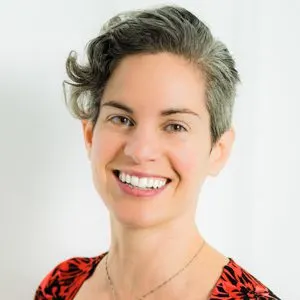
The author, Lillie Marshall, is a 6-foot-tall National Board Certified Teacher of English from Boston who has been a public school educator since 2003. She launched TeachingTraveling.com in 2010 to share expert global education resources, and over 1.6 million readers have visited over the past decade. Lillie also runs AroundTheWorld L.com Travel and Life Blog, and DrawingsOf.com for educational art. Do stay in touch via subscribing to her monthly newsletter, and following @WorldLillie on social media!
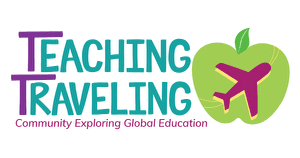
Mitchell
Friday 26th of October 2018
Yves... I am so impressed. I've taught world history in the middle school classroom for 6 years and every vacation I am on a plane heading to a new place in the world. Currently, I am taking a year off and trying to find a way to combine my passions of travel and education. What is your position with G Adventures? Do you have any recommendations for me?
Steph Alexandre
Thursday 29th of March 2018
This is such an amazing article, Yves! Over 70 countries -- speechless.I completely agree that young people should be required to travel. I started traveling in 2012 and I've never looked back! I cannot think of a better way to learn, grow, make mistakes, explore, and thrive! Cheers to the good life!